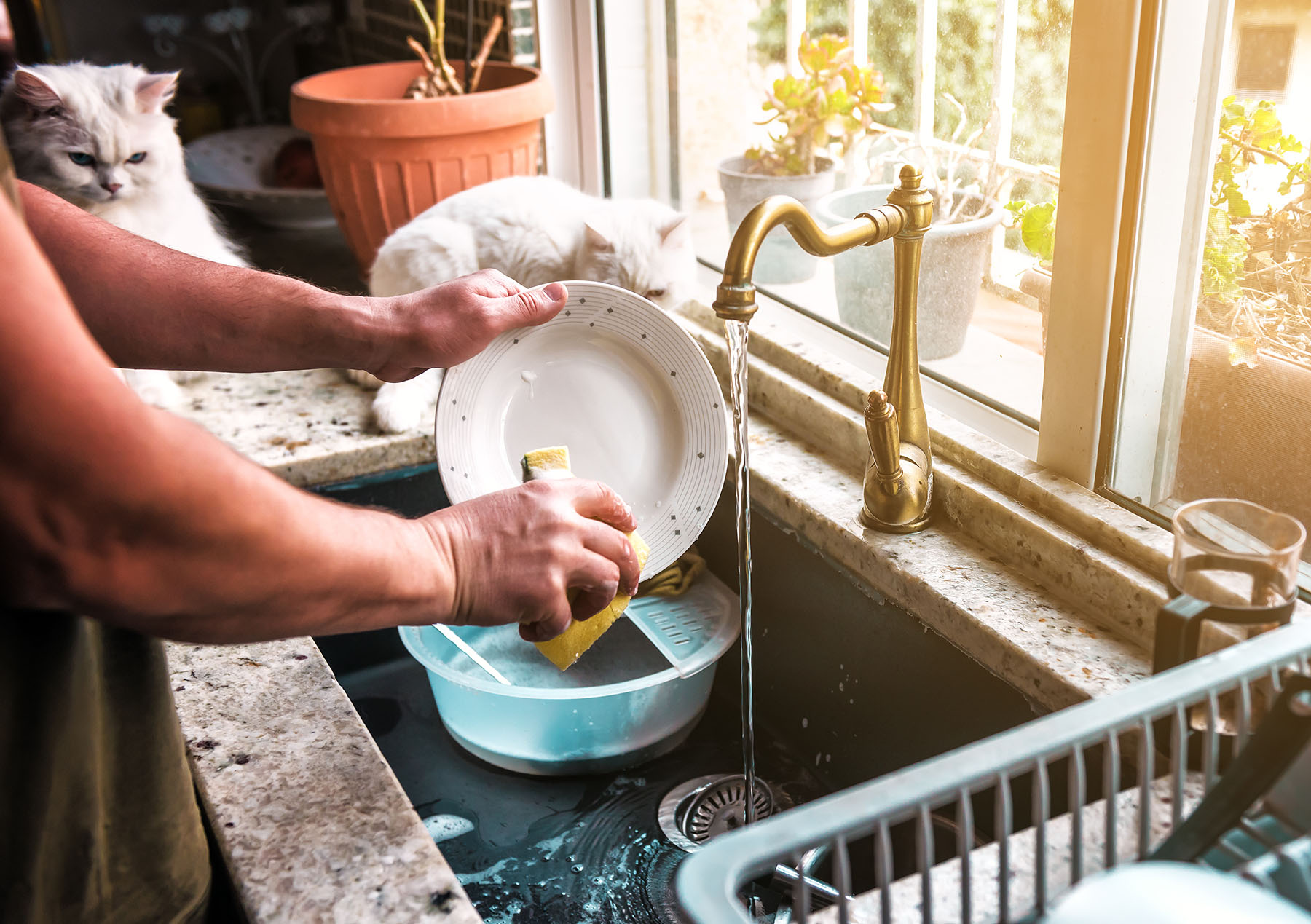
Why is saving water so important?
Only 2.5 percent of the water supply worldwide consists of fresh water, and people have access to only 0.3 percent of that. Due to climate change, dry, hot summers with little precipitation cause groundwater levels to sink, which causes plants to die and leads to poor soil quality.
And the need for drinking water is increasing at the same time. In many countries, countless people have no access to clean drinking water, since it has been contaminated by bacteria and would have to be purified in wastewater treatment plants at great cost. Every person in Germany uses around 123 litres of water a day, of which the smallest portion is used for drinking. This makes saving water extremely important.
How wasting water affects the environment
Wasting water has a considerable influence on the environment. For example, it can make it difficult for plants and animals that rely on water to meet their needs. Wasting water can cause certain types of animals and plants to die out or have to leave their habitats due to water scarcity.
If water is wasted in agriculture, this can lead to over-fertilisation of the soil, which can in turn lead to contamination of the groundwater. Moreover, removing water from rivers or lakes for use in industry can also affect the animal world.
And generating, heating, and distributing water takes a lot of energy – especially if the water is pumped from sources far away. Wasting water requires additional energy to treat or regain the wasted water. And this can lead to higher energy costs and a higher carbon footprint.
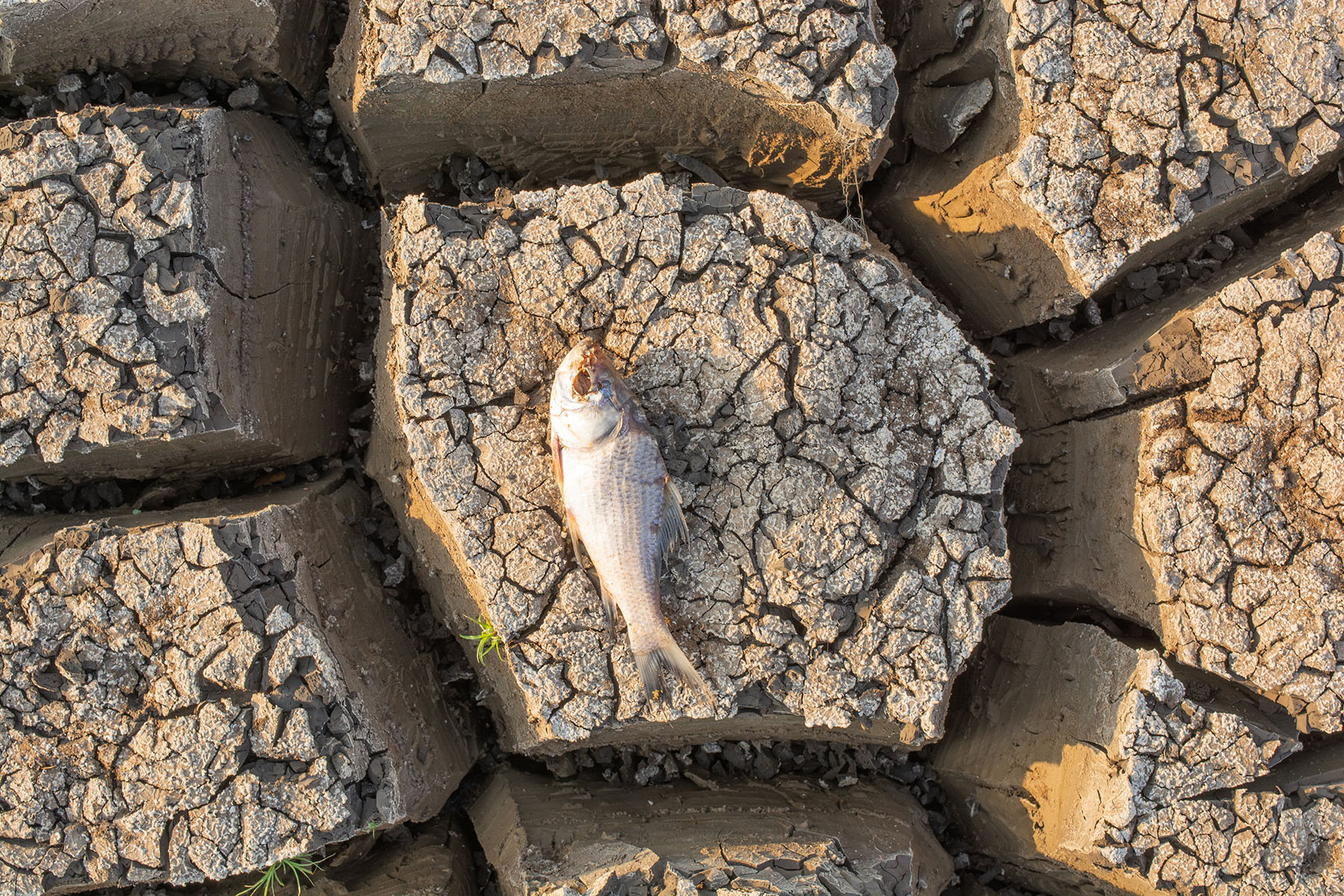
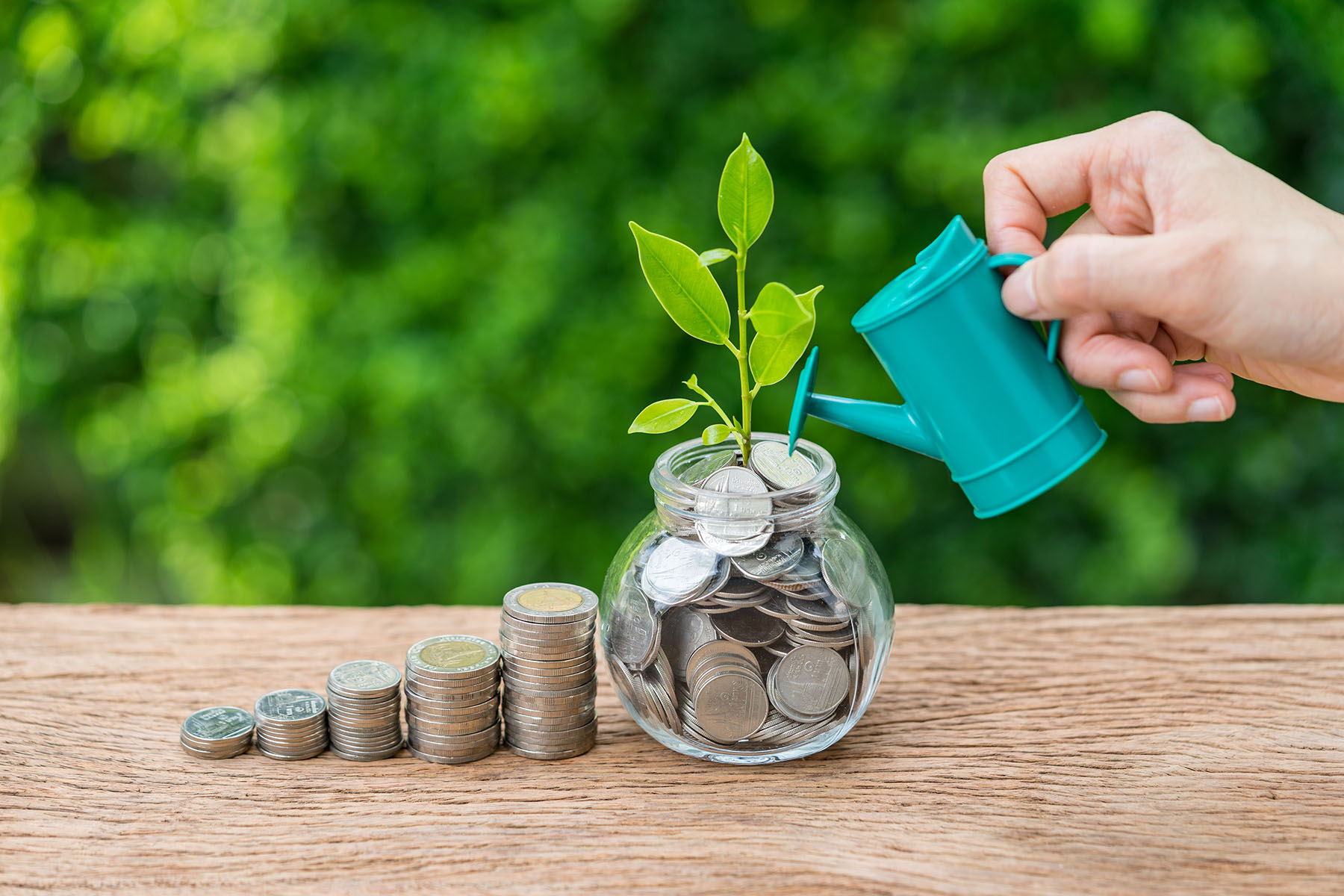
Economic advantages of saving water
There are many advantages when water is saved: for individuals, for companies, and for society as a whole.
The 5 most important advantages to saving water are:
- Saving costs: If you use less water, you can lower your water costs. This especially applies in regions with high water prices.
- Saving energy: Saving water can also lead to savings in energy costs. If you use less hot water, for example, you need less energy to heat the water.
- Saving water can also lead to lower repair costs. If you use less water, you reduce the risk of leakage or other water damage in your house.
- Water-saving equipment can also increase the value of your property. If you invest in water-saving equipment, this can resonate with potential buyers or tenants and increase the value of your property.
- In some regions, there are even tax incentives for water-saving measures. This can range from lowering water costs to tax credits for purchasing water-saving devices.
Save water in the kitchen: Simple tips to use everyday
We will give you the most important tips on how you can save water during shopping, cooking, and washing up, and make your kitchen more sustainable.

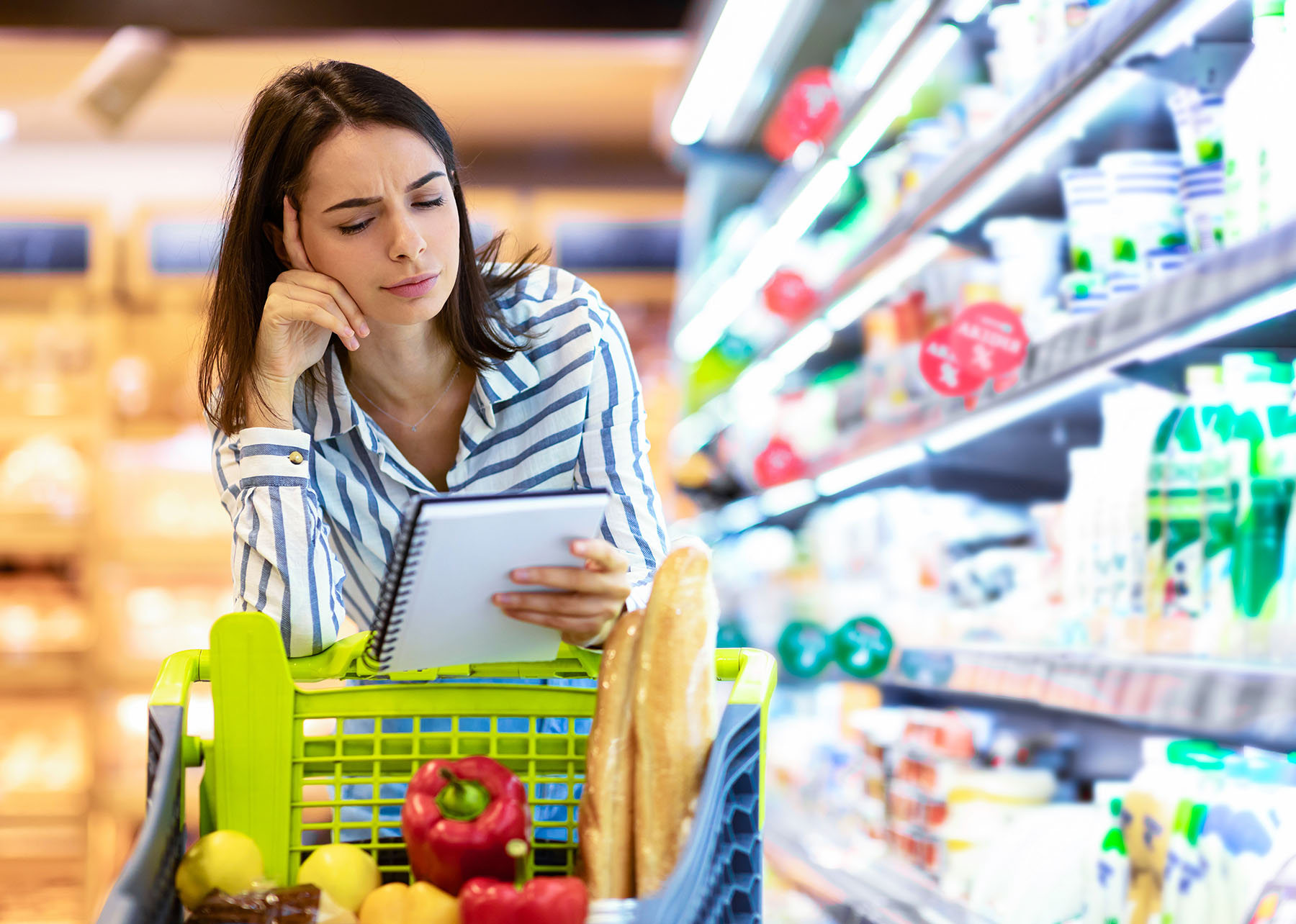
Saving water in the kitchen begins with shopping
Food production normally requires a considerable amount of water. But some foods need more water than others.
These 5 foods need a great deal of water to produce:
- Meat (especially beef)
- Milk and daqiry products
- Rice
- Avocados
- Almonds
- Legumes
- Potatoes
- Cabbage
- Zucchini
- Mushrooms
Of course, the actual amount of water needed to produce food varies depending on the growing conditions and production methods.
If you prefer seasonal and regional food, you’re generally on the right track. Organic food is always an especially good choice. This seasonal calendar will help you put together your shopping list.
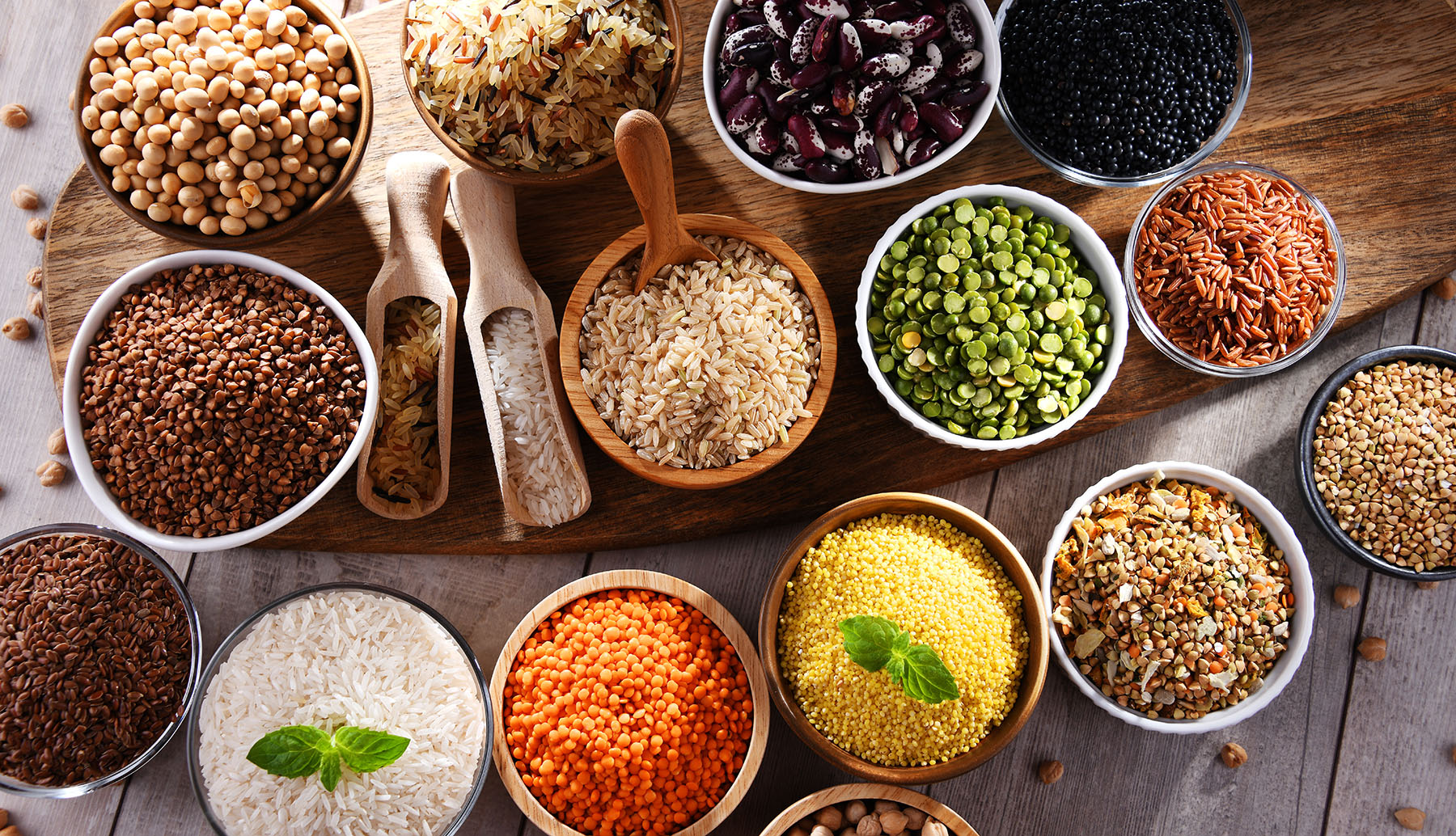
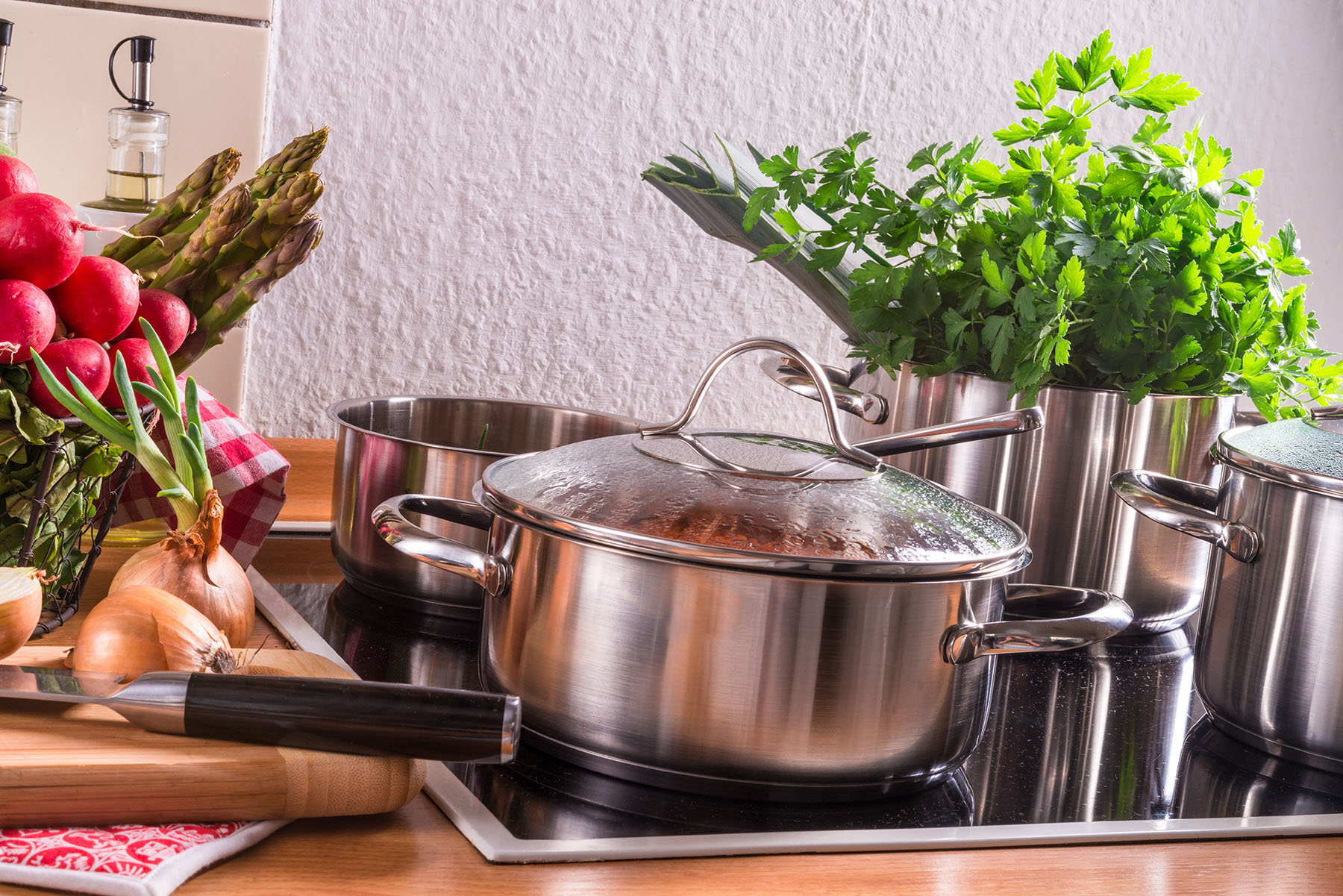
Saving water in the kitchen during cooking
A considerable amount of water can be saved during the cooking process itself. The following tips help save water:
- Choose the size of the pot according to how much you want to cook. A large pot has a greater surface to be heated. More water condenses on the surface and, without a lid, is released inefficiently.
- Precook your food: This saves not only energy, water, and the amount of washing up you have to do, but also time.
- Use tightly fitting lids when boiling, and don't allow pots to boil by themselves uncovered. This saves water and energy. You can read more about ‘Saving energy when cooking’ in this article.
- The cooking water from vegetables can serve as an excellent base for soups and sauces.
- Steaming is a good solution for saving water in your home. In this article, you can read more about ‘Cooking sustainably’.
Save water in the kitchen: Washing up
The following tips can help you save water when washing up:
- Soak the used dishes beforehand. This will allow you to reuse the water in the sink or bowl, which will save water.
- In general, dishwashers use less water than washing by hand.
- If you wash dishes by hand, be sure the water isn't running continuously.
- Use a dishwashing brush or sponge to pre-rinse the dish instead of rinsing it under running water.
- Use environmentally friendly detergents that require less water to wash dishes.
- No unnecessary wash cycles! Always make sure you have a full dishwasher or sink before you wash up or operate the dishwasher.
- Use savings cycles, short cycles, and eco cycles as needed.
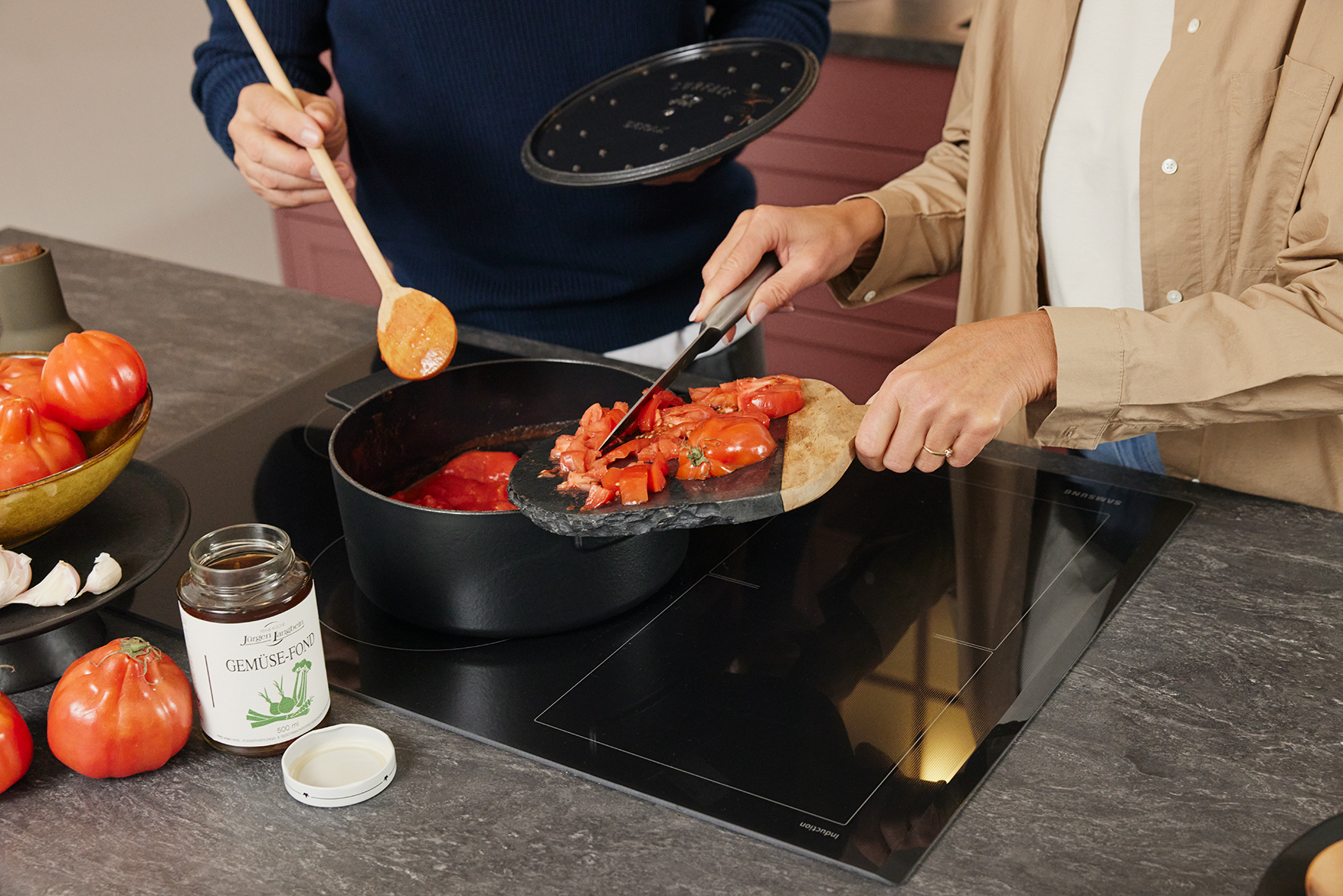
Other ways to save water in the kitchen
Renewable technologies for the kitchen
Here are the 5 most important renewable technologies for the kitchen:
- Solar cookers: Solar cookers use the energy of the sun to cook your food.
- Induction hob: Induction hobs use magnetism to generate heat instead of open flames or glowing hot plates, like traditional stoves.
- Biomass stoves: Biomass stoves use organic materials like wood, corncobs, and plant residues as fuel.
- Heat-pump water heaters: Heat-pump water heaters use ambient heat to heat water.
- Photovoltaic systems: Photovoltaic systems use sunlight to generate electrical energy.
Saving water in the kitchen by using faucet attachments
By using faucet attachments you can reduce water consumption in the kitchen, help protect the environment, and save money. The most popular varieties are:
- Aerator
- Perlator
- Flow limiter
- Sensor faucet
- Foot pdeal faucet
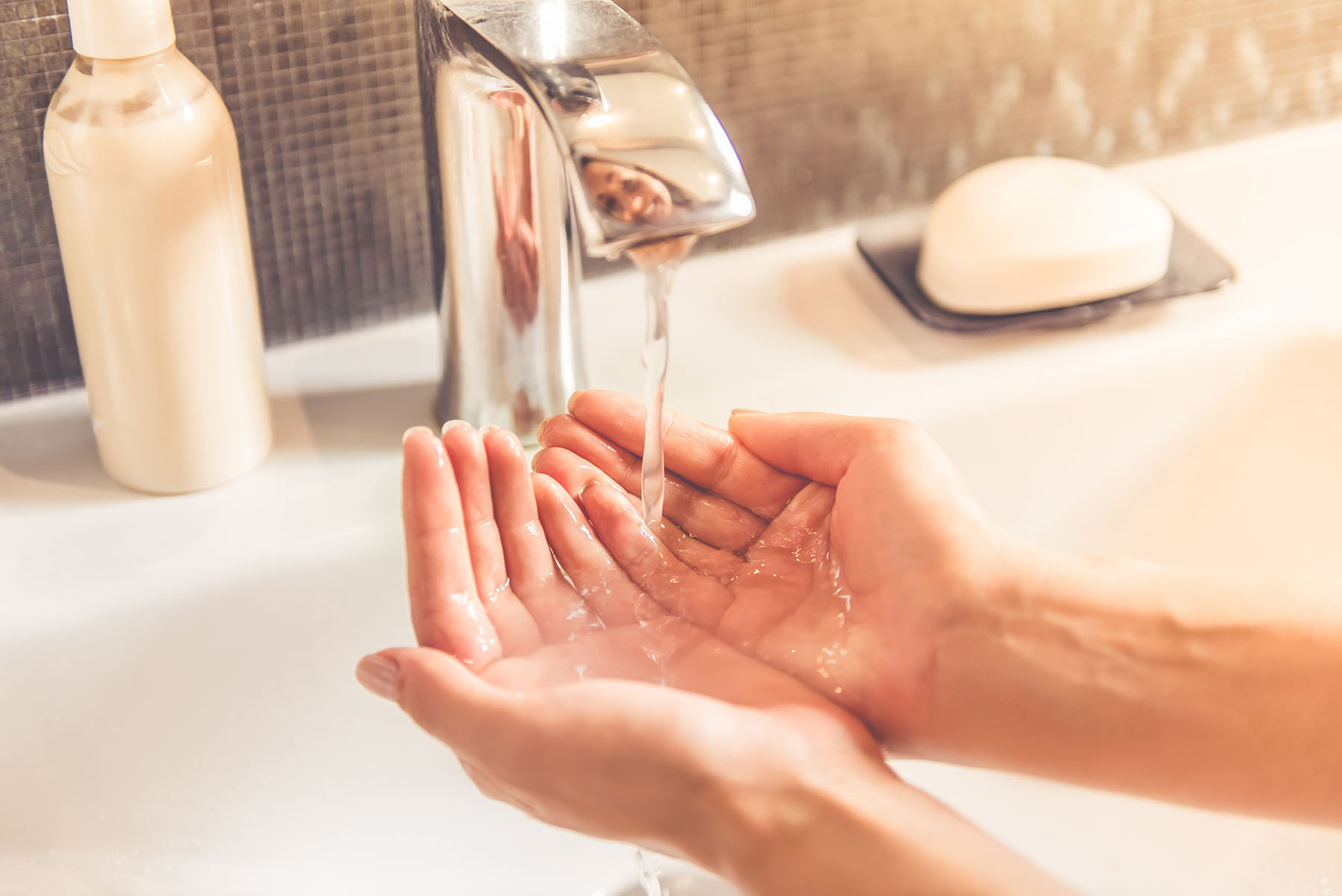
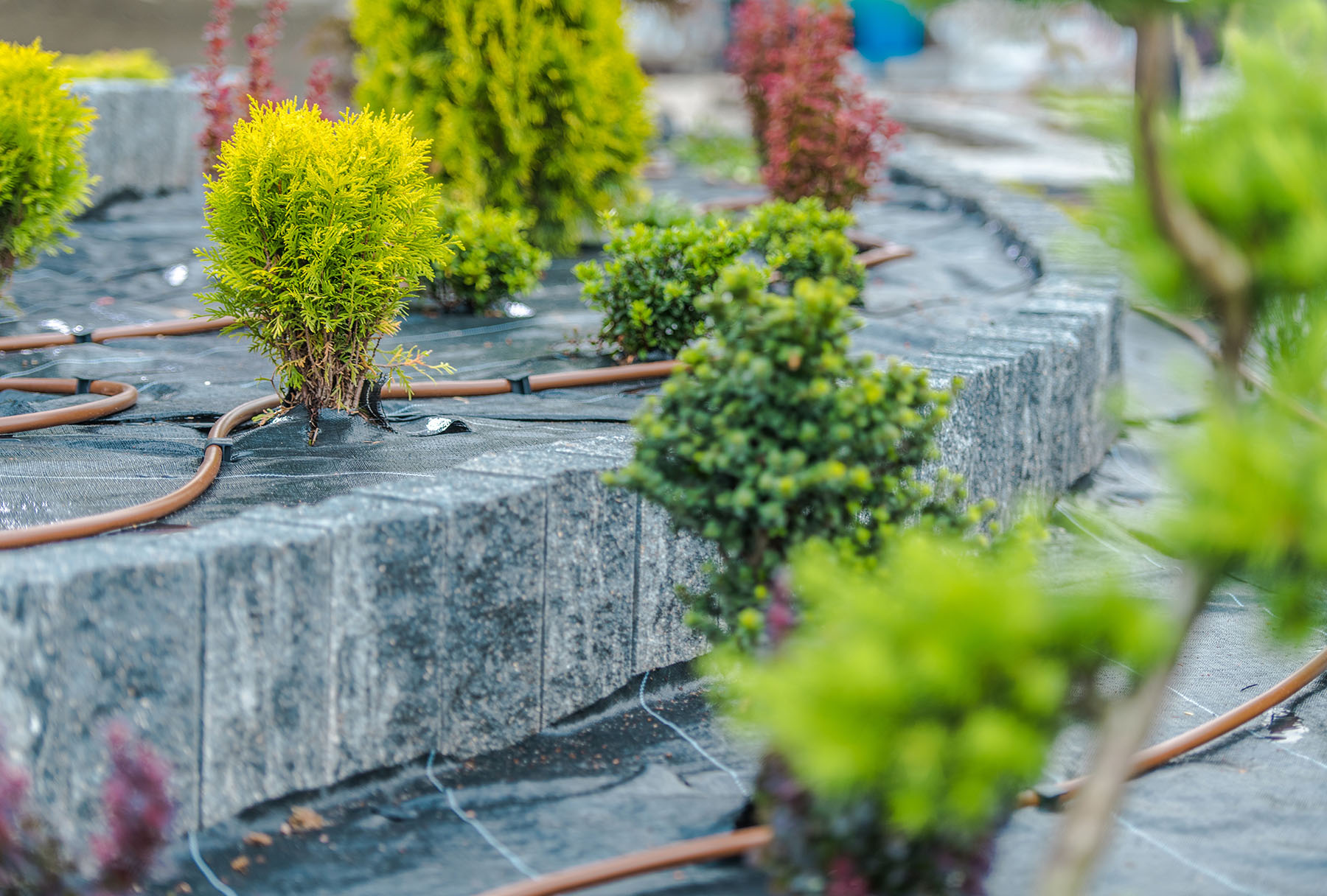
Using greywater systems
A greywater system is a device that treats the water from showers, tubs, sinks, and washing machines so it can be used for non-drinking purposes such as flushing toilets, watering gardens, and cleaning. Households and companies who reuse greywater can drastically reduce their water consumption.
Saving water by using energy-saving devices
Energy-saving devices can do a lot to help save water, since they work more efficiently and consume less water than traditional devices.
For example: Energy-efficient dishwashers and washing machines save water by using special programs and technologies to reduce water, including sensor controls that adjust the amount of water according to the load.
Avoid leakage
By avoiding leakage, you can not only save water but also lower your water bill and protect the environment. It's important to check for leakage regularly and repair it immediately to avoid wasting water.
Summary
There are a few possibilities for saving water in the kitchen and helping protect the environment. By taking deliberate actions and implementing the measures discussed, we can all do our part to protect water and leave behind an intact environment for future generations and save money.
Summary of the most important tips
- Buy the right foods
- Use faucet attachments
- Use greywater systems
- Handle water deliberately
- Conserve resources when cooking
- Avoid leakage
- Use energy-efficient devices
